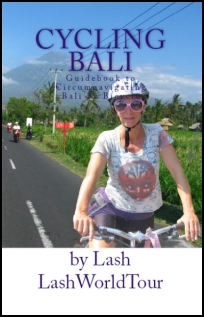TRAVEL INTERVIEW WITH BENNY OF FLUENT IN 3 MONTHS
Irish Benny Lewis has made quite a name for himself as a kind of language guru, via his website, Fluent in 3 Months. Starting out in Spain several years ago, he’s been jumping around the world and straight into each country’s languages in order to communicate as quickly as possible with the locals. From his successes, he’s developed his own language learning program, which is followed by thousands and thousands of adoring fans and hopeful multi-lingual travelers.
In today’s interview we find out a lot more about Benny: how he got hooked on language learning, how he wound up as a non-drinking Irishman, what it’s like traveling as a vegetarian, his hardest and easiest languages, and his future plans. Let’s get started:
Q1. On your blog, Fluent in 3 Months, you explain that you grew up speaking only English and were not particularly good at languages in high school. You only became interested in languages after you moved to Spain at the age of 21.
So, how/why did living in Spain/learning Spanish get you hooked on learning languages? After all, loads of people move overseas, learn the country’s language, but don’t end up pursuing languages as passionately as you have. (me, for instance)
Great question! I spent almost six entire months in Spain and learned very little Spanish – enough to order food and the like, but that was about it.
Up until then I was vaguely thinking of going back to Ireland to continue my studies, but when I decided to live in Spain all the way through to the following summer, I needed to tackle this language problem in a more serious way.
The problem is that too many of us think living in a country should automatically lead to learning the language, so if you don’t, then you don’t have the language gene and give up quickly. It can feel intimidating to not be able to communicate yourself effectively even after a month or so of trying hard.
Trying hard wasn’t my problem, since I did indeed sign up for classes and study grammar those first months. What really changed was very simple:
I stopped living my life entirely through English.
This is the real problem with expats abroad. They have English speaking friends, use English not just at work (which is unavoidable in many situations, including mine), but also to wind down with their other foreign friends. And any local friends they have will only speak English with them (and very enthusiastically, since English practice can be expensive otherwise).
It’s a tough decision, but you have to make it if you are serious. When I made it, the only English I ever spoke was when I was teaching it – I had a strict rule of no-English-ever unless you were paying me to do it. Since I was only working 15-20 hours a week this gave me ample chances to dive in. When you are in the deep end (and no, being in the country is NOT immersion; using the language all the time is) then you are forced to learn.
You have to ditch your English speaking friends if you are serious.
Language talent is irrelevant – you have to make sacrifices. You have to give up your mother tongue in exchange for the language you wish to acquire. Speak it from day one, and do so pretty much all the time – it’s been my philosophy ever since.
Q2. Thus far, are there 1 or 2 languages that have been harder for you to learn than others? If so, which and why was it more difficult?
Spanish was the hardest. It will always be “the hardest language in the world” if you ask me (and many do). Beating Hungarian, Czech, Mandarin, Thai and Turkish by a long shot.
Language difficulty has nothing to do with silly grammar rules and the like. It’s your attitude and learning approach. I wasted so much time with an inefficient learning approach with Spanish that I made it hard for myself to learn.
This is always the learners’ (or the teachers’) fault, not the language’s. Comparing languages is actually a huge waste of time – either you want to learn it or you don’t. Who cares if some academics who don’t know your passion for the language and need to learn it think it may be harder or easier than this or that language? I certainly don’t.
Q3. How about the easiest language for you to learn and why was it easier than the others?
Esperanto. It was designed to be easy! It has a sprinkling of vocabulary from various European languages, it has the simplest grammar in the world, no exceptions, and very easy rules for making new words and opposite pairs (big is granda, small is malgranda).
I didn’t learn it for linguistic curiosity though. I’ve genuinely used the language to socialize, give presentations, make documentaries and get to know various cultures at a deep level, since the Esperanto community is huge.
You can find many fantastic and very well organized meet-ups of speakers who exchange ideas (by definition, the language doesn’t belong to a single place, although they are easier to find in Europe), and online it’s huge! There are more Wikipedia articles in Esperanto than there are in Arabic, for instance.
Q4. Do you have any personal long-term / life-long language learning goals?
(like you want to be able to speak 100 languages. Or you want to be completely fluent in 20 languages. Or do professional translation work in 10 languages. Or some such)
Nothing of the sort. In fact, people may be surprised to read that I don’t like languages! I don’t consider myself a language learner, or someone passionate about languages; I use the title “language hacker” because I want to find the quickest and most efficient way to learn it, while others may appreciate the learning process itself.
What I’m passionate about is culture, getting to know people, travel and expanding my horizons. While I don’t necessarily like learning languages, I am definitely passionate about using them! Making friends in faraway places with people who don’t speak English opens up so many doors.
So my long term goals are cultural rather than linguistic. The number of languages is irrelevant. I still want to travel through more Central and South American countries for example, so Spanish (and Portuguese and even French) will help me there.
In my travels, I also have no solid goals. I have no “bucket list”, and dislike the very idea. (Replace the ‘b’ with an ‘f’ to sound out what I prefer). I’m quite spontaneous and only plan a few months in advance because of practical reasons like cheaper flights and visas.
If it’s more than a few months in the future, I have no idea where I’ll be and what I’ll be doing. I’ll just focus on what is working for me now, keep travelling and learning about other cultures, and trying to inspire others to do the same! I may stop travelling in a few years and start something completely different. Time will tell
I certainly don’t have my sights on the Guinness Book of records or anything. You’ll find other language learners who have a much more impressive resume than I do. They are passionate about learning languages, so good for them!
Q5. Fluent in 3 Months has a massive following: over ¼ million monthly page views on your site and over 12,500 FB fans. Awesome! Congrats! Among all those fans and followers, what are the 2-3 most expressed insecurities/fears people have about learning a new language?
It’s usually what I consider to be academic insecurities, which they shouldn’t worry about. Such as “I only know a few hundred words of vocabulary”, “German grammar is too hard” or “I can’t write Chinese very well”.
I try to get people off this line of thinking – a language is a means of communication between human beings, not something you can be tested for and fail. By opening your mouth and saying something, you succeed.
If people want to pass a test, I can’t really help them, but if they want to use the language with human beings they need to forget about rating how good they are and focus on using what they know and expanding on that as much as they can. The more mistakes you make the better because that means that you are truly using the language!
Q6. Please excuse me for falling back on an old stereotype about the Irish being really hardy drinkers, along with the British, Scottish, and Germans… (if it’s any consolation, my ideas are based mostly on real Irish travelers I’ve met around the world)
How did you grow up in Ireland and become a non-drinker?
Are you a minority, or are there lots of Irish people who don’t particularly like drinking? (thanks for clearing up the stereotype one way or the other :) )
Many countries all over the world drink as much or more than the Irish do. Such stereotypes are usually self-fueled and based on exaggerated accounts, as well as confirmation bias.
I’ve met many Americans who say “I went to Ireland and only saw drunk people!” and when I ask where they spent their time, the inevitable answer of “Temple Bar, Dublin!” comes up. This is a very touristy area… of bars. They never go to chess club meetings or book readings – they go to bars.
Hell, if I spent all my time in bars in any country, I’d think that whole country is filled with drunkards.
What is true in Ireland is that pubs are the centre of socializing for many people. Confirmation bias would not allow you to register the many of us who go to bars to socialize with everyone else, and simply get a water or a coke. The presumption is that because bars are the centre of socializing, absolutely everyone must be drunk.
I’ve personally never felt the need to drink. I see alcohol as acting as a placebo for gaining confidence or having fun. Studies have confirmed that people who think they are drunk, (such as when drinking non-alcoholic beer and thinking it’s normal beer), act drunk and let their guard down or are more confident etc.
I prefer to be confident 7 days a week in the morning, afternoon and evening. If someone feels they can have fun, or be a better person in some other way through alcohol, they need to realize that it’s something they are doing themselves. They don’t need beers’ permission to do so.
I go out with people who drink all the time and usually don’t bring it up, or argue or discuss it with people. I have fun, dance and sing and talk to strangers, so some will think I’ve had a few to drink already, and others will realize that I simply don’t need it.
There are many in Ireland who are similar to me in this regard, but as I said, confirmation bias (the root of most stereotypes) will make all others stand out. If you’ve met Irish people drinking, and it was in a party where others are drinking too, then all you’ve done, ironically, is satisfy the world’s stereotype of American ignorance to be frank ;)
Americans being ignorant is a stereotype that the rest of the world has of the country. This is the same problem. It’s easy to find Americans who have no idea about the simplest of facts, but it’s also easy to find incredibly intelligent ones. But confirmation bias would ignore the latter.
There are plenty of ignorant people everywhere, and there are plenty of people who drink a lot everywhere. I prefer to get to know someone when I meet them and not hold any preconceptions about what they should do or how they should think based on sex, skin colour, nationality, etc.
Q7. You’re also vegetarian. As a vegetarian world traveler, do you have trouble finding food to eat? Or is it relatively easy?
It depends. You can always cook for yourself – and this is ridiculously easy no matter where you are, since you can pretty much always find many vegetables and the like if you are near a populated area.
But for eating out, I’ve found that if there is nothing on the menu I can eat, I simply ask for something that has beef or whatever as an ingredient and request they cook it without that, or replacing it with vegetables.
I don’t really eat in vegetarian restaurants so often, since they tend to be more expensive than local restaurants, and local friends I meet may not be interested in going there. So, I’ve made it work in other restaurants. I’ve never once gone hungry ;)
Q8. As a vegetarian, I imagine that perhaps some countries are easier, some harder than others? If so, which are particularly easy and difficult? How do you deal with eating in places where it’s hard to find vegetarian food?
India was, of course, incredibly easy. I could just point at something in many restaurants and have no idea what it was and try it anyway, which is not possible in most countries.
Argentina and the south of Brazil were tricky because they over-indulge in beef at times. I’ve found that the local translation of vegetarian is pretty much useless to me, and I need to find an alternative. In Brazil I found self-service restaurants the best solution by far, as they are very widespread.
In Argentina it was interesting that if I said I was on a diet they’d have something for me, even if they previously said they had “nothing vegetarian”, since their idea of vegetarian is lettuce and a carrot.
I find simply talking to the waiter for a moment solves the problem in nearly all cases! I never give up at “we don’t have anything vegetarian” and I’ve eaten rich and healthy meals in the most unlikely of places.
Q9. What other interests and activities do you enjoy while traveling, besides learning and practicing languages?
I love dancing and always try to learn the local dance (tango in Buenos Aires, salsa in Colombia, forro in the northeast of Brazil etc.)
I always like to be as social as I can, so I am always on the lookout for good parties, events, festivals and any means to make new local friends. Learning and practicing the language for me is always the means to an end to do all of those much more interesting things.
Q10. You’ve been out traveling the world over 9 years already, with 8 years pretty much continually on the move. What are your favorite 2-3 places in the world so far? Why do you love them so much?
My most favourite place is Brazil, no competition. They are warm, friendly, open, musical, hygienic, beautiful, easy-going, relaxed and yet intelligent, interesting, fun, hard working, advanced and efficient in many ways.
After that I also really like Spain! Spaniards visited my hometown for the summer to learn English when I was a teenager. I never learned Spanish from them, but I did hang out with them a lot and appreciated their style of living enough to move to Spain after graduation.
I’d love to spend more time in Brazil, but Spain is more practical to live in for the long-term as I’m an EU citizen (for bureaucratic and visa issues), and it’s easier and cheaper to visit my family more regularly from there.
Q11. Are there any places you’re just dying to visit? If so, where and why?
Not really. I focus more on the moment and enjoy where I am, only ever thinking of the next country I’ll be travelling to. There are plenty of places that I am pretty sure I’ll end up visiting, but I’m not really “dying” to go there. When I’m almost going there I’ll be super enthusiastic, but for now I prefer to be more focused and appreciate where I am, or the immediate next place.
Q12. Where do you see yourself 5 years from now?
No idea. If you had phrased this as “where do you see yourself 5 months from now” I still wouldn’t be able to answer it! I’m a spontaneous traveler with no long-term plan. I have to live day-by-day many times, so I can’t even fathom long-term planning right now.
I’ll likely continue travelling and learning languages (and blogging about it) for at least another 2 or 3 years, and then I think I’ll be ready to do something else.
There are many things I’ve had to sacrifice by having everything I own in the world weigh less than 50lbs, and not have a home, and move so often. I consider travel an education to improve my outlook and understanding of the world. There are other forms of living that I can also learn a lot from. We’ll see!
————————————————————————————————————————————————————–
Thanks so much, Benny, for giving us some insights into your language learning style, your travels, interests, and personal habits. Great getting to know you better. Cheers, Lash
Follow Benny:
Facebook: fluentin3months
Twitter: irishpolyglot
Product page: speakfromday1.com















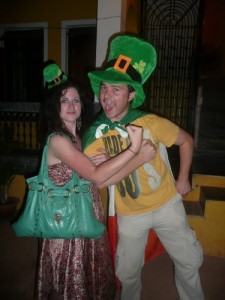
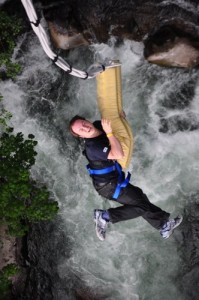





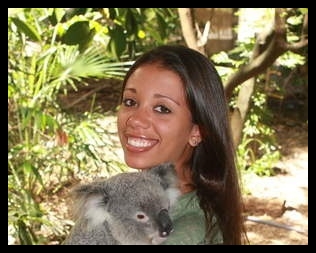

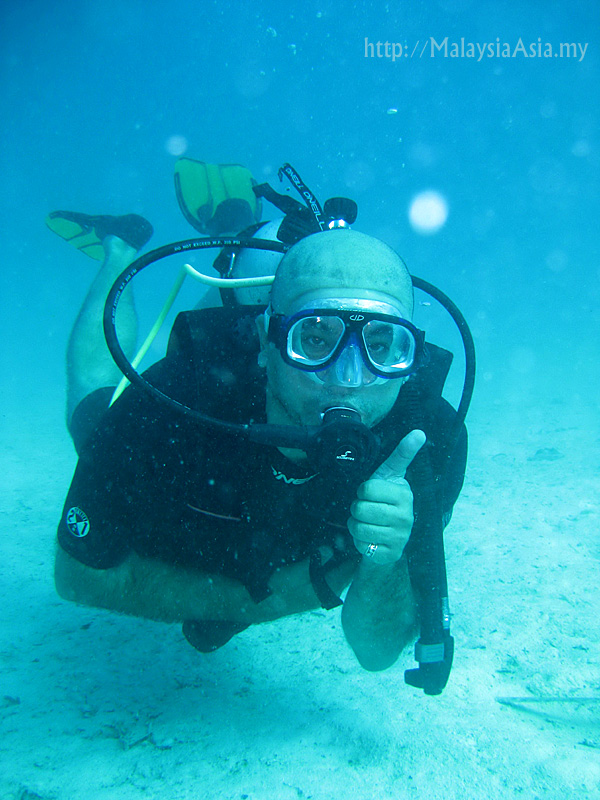
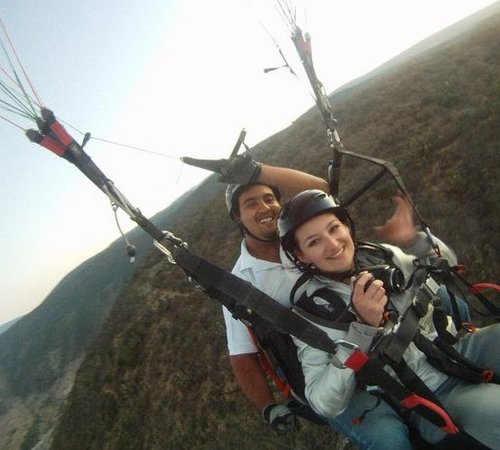

 Hi! I'm Lash, an American nomadic world traveler who's been traveling solo since 1998. I’m passionate about traveling the world nomadically and then sharing it all with you. I hope to inspire you to travel the world, to entertain you with tales from the road, and to help you reach your travel dreams. Welcome!
Hi! I'm Lash, an American nomadic world traveler who's been traveling solo since 1998. I’m passionate about traveling the world nomadically and then sharing it all with you. I hope to inspire you to travel the world, to entertain you with tales from the road, and to help you reach your travel dreams. Welcome! 



